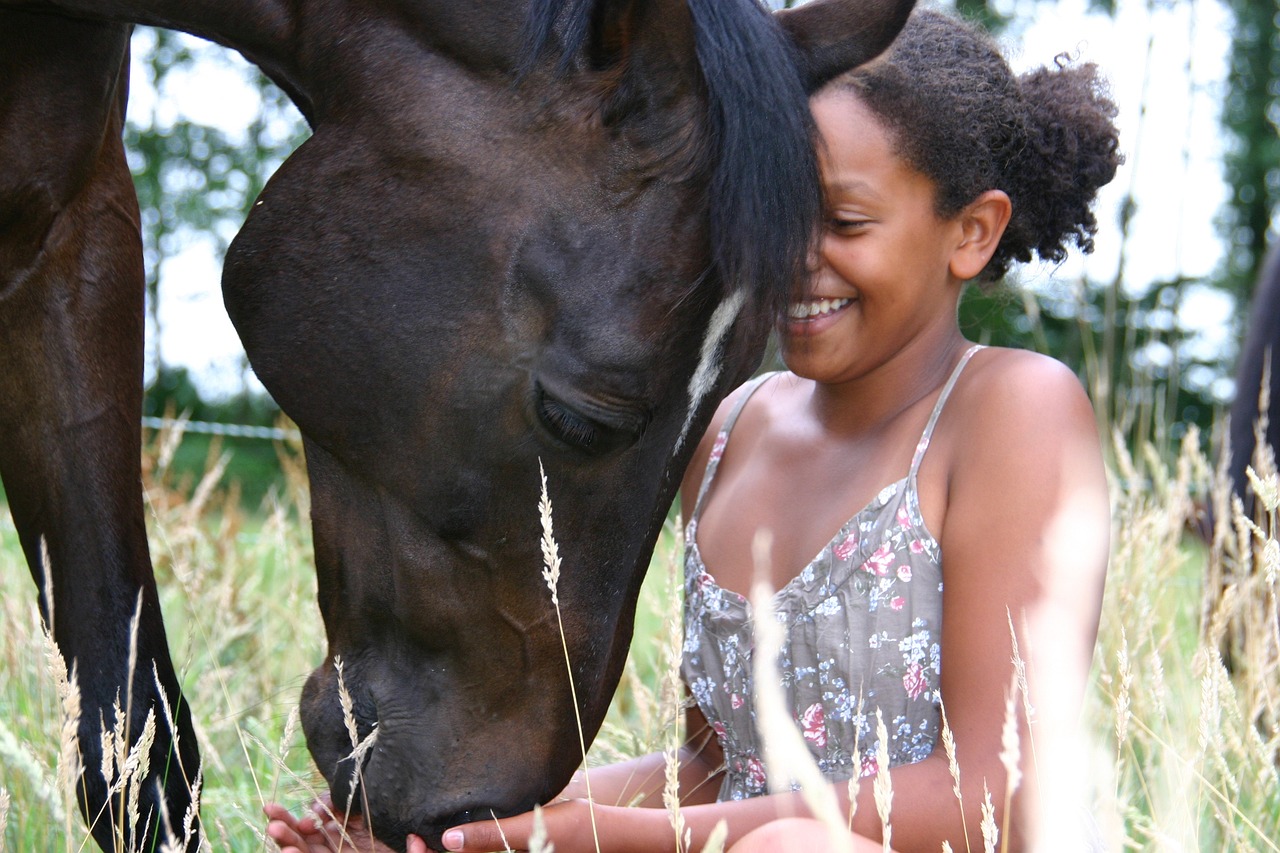
Cheerful horse behavior is encouraged through equine enrichment, such as toys for horses, social interactions and movement.
Four Signs of a Happy Horse
You love your horse and do everything possible to ensure his health through equine vaccines, horse wormers, the best supplements and more. And of equal importance to horse health, is horse happiness.
We asked Robin Foster, Ph.D., certified equine behaviorist and university professor of 30 years, how horse owners can know whether their horses are as happy as they are healthy. She shared with us four key characteristics of happy horses -- engaged, enriched, social and moving -- and explained more about each unique component.
Engaged
Happy horses are engaged with life going on around them. They are active members in their social groupings and attentive to, and eagerly willing to, explore their environment.
Enriched
“Enrichment opportunities for horses have really grown dramatically,” Dr. Foster said, crediting positive changes made in zoo environments for large animals in confinement. “Minimizing the effects of isolation, stress and limited movement -- zoos have these same challenges, and the equine industry has borrowed from that,” she said.
Enrichment falls under different categories, such as sensory, movement and feeding enrichment, which offers horses the opportunity to enjoy treats and work for food, such as with problem-solving horse toys. Cognitive enrichment keeps their mind working and burns energy,” Dr. Foster said.
“The first job is to make sure it’s something your horse will work for. Some horses love certain enrichment items, while for other horses, they just sit there. Shop around and experiment,” suggested Dr. Foster. Horses can learn the game rather quickly through their curious nature or by watching another horse. “When they can see other horses, they learn very quickly that food comes out of that thing and they will give it a good try,” continued Dr. Foster.
Social
It’s important that from an early age, horses have social interactions with other horses to meet their social needs. Depending on how horses are housed, they often have limited social time even at a barn with other horses. This is also true in the human-horse interaction.
“No matter how much you care for your horse, humans have very complex lives with many demands -- the horse being only one of many. Your life with your horse is maybe an hour a day. The amount of time a person spends with their horse can be limited, and what does the horse do the remaining 24 hours? If horses do not have a social life with other horses, and a rich, complex environment, you can bet that affects their overall behavior,” Dr. Foster said.
Moving
“Horses need the ability to move freely,” Dr. Foster strongly encouraged. Happy horses are free to run, roll, turn wildly, race around and kick up their heels -- not just move in a fixed way, such as lunging. All of this can play a role in a horse’s behavior.
“Horses able to move more freely are usually more physically fit for competition or riding. And mentally, they are more resilient and buffered against stressors,” Dr. Foster said. For example, think of how a barn-kept horse under saddle might react to a large owl spreading her wings to swoop from a tree, compared to a pasture-kept horse or one with intermittent turnout.
Consider these four characteristics as they relate to your own horse’s happiness. Is your horse displaying each of the four signs, or could a few changes be needed? Learn more information at ValleyVet.com to help keep your horses healthy and happy.
This article originally appeared on Valley Vet and is published here with permission. Valley Vet Supply was founded in 1985 by veterinarians for people just like you - people who want the very best for their four-legged friends and livestock.
There are more informative articles in our section on Health & Education.

































